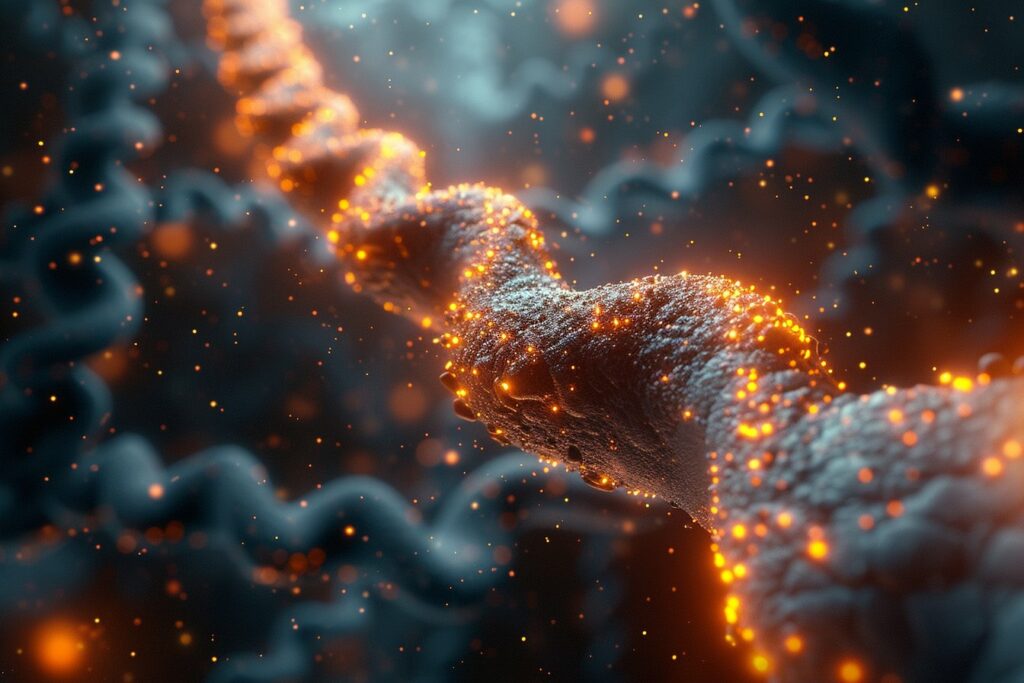In recent years, protein has emerged as a popular ingredient in weight loss diets, with people turning to high-protein foods and supplements in an effort to shed extra pounds. But does consuming more protein actually lead to weight gain instead of weight loss? This article will delve into the various factors that influence the relationship between protein intake and body weight, while demystifying the myth around protein and weight gain.
The Role of Protein in Weight Control
Protein is one of the three macronutrients required by our bodies to function optimally, along with carbohydrates and fats. It is responsible for building and repairing tissues, as well as producing enzymes and hormones. But does its role extend beyond these essential functions? Many health experts believe that protein can play an important role in weight management. Here’s how:
Fueling Metabolism
Compared to carbohydrates and fats, proteins have a higher thermic effect, which means that the body burns more calories when digesting and metabolizing them. Research shows that increasing your protein intake can boost metabolism, leading to increased calorie burn throughout the day.
Reducing Cravings and Keeping You Full
Eating a diet rich in protein may help curb cravings and keep you feeling full longer. One study found that participants who increased their protein intake to 30% of their daily calorie intake reduced their overall food consumption due to increased feelings of satiety. This preventative action can aid in preventing unnecessary snacking and promote healthier eating habits.
Maintaining Muscle Mass
A crucial aspect of maintaining a healthy weight involves preserving muscle mass while losing fat. Consuming adequate protein helps minimize muscle loss during weight loss, ensuring that your body is burning fat for fuel and not precious muscle tissue.
Can Protein Intake Actually Lead to Weight Gain?
While it may seem counterintuitive, increasing protein intake may lead to weight gain in certain situations. It’s important to note these cases under various circumstances:
Excessive Calorie Consumption
No matter which type of macronutrient you are consuming – be it carbohydrates, fats, or proteins – consuming too many calories will eventually result in weight gain. If the extra protein consumed adds to an already excessive calorie intake, the chances are that it will contribute to weight gain.
Over-reliance on Processed Protein Foods
Many protein-rich foods that flood the market today come in highly processed forms, such as meal replacement shakes, bars, and snacks. Some of these products contain added sugars, oils, and other unhealthy ingredients that can contribute to weight gain if consumed in excess. It’s essential to choose whole, unprocessed sources of protein when possible, such as lean meats, fish, legumes, and dairy.
Lack of Sufficient Physical Activity
A key component of weight management involves maintaining a balance between energy consumed through food and energy expended through physical activity. Even if you’re eating a balanced, high-protein diet, insufficient physical activity levels might still lead to weight gain.
Striking the Right Balance: Protein and Weight Loss
To reap the benefits of protein in your weight loss journey, it’s crucial to strike the right balance in your diet and lifestyle. Here are some tips to help optimize your protein consumption without risking weight gain:
- Understand Your Daily Protein Needs: Your protein intake should be tailored to your individual needs based on factors such as age, weight, activity level, and fitness goals. A decent benchmark for healthy adults is to consume around 0.8 grams of protein per kilogram of body weight daily.
- Choose Quality Protein Sources: Prioritize whole, unprocessed sources of protein like lean meats, fish, poultry, eggs, legumes, nuts, and seeds for a balanced diet that promotes satiety without excessive calorie consumption.
- Incorporate Protein in Every Meal: Distributing protein intake evenly throughout the day ensures a consistent supply of vital amino acids required for various bodily functions. It can also help reduce cravings, as every meal provides a sense of fullness.
- Maintain a Calorie-Controlled Diet: Along with adequate protein intake, it’s essential to monitor your overall calorie consumption and tailor it to your specific weight loss goals. Use online calculators and tracking tools to help stay accountable to your daily calorie limits.
- Stay Active: Engage in regular physical activity to maintain an optimal balance between energy consumed and expended. Include strength-training exercises to promote muscle growth and further enhance the metabolism boosting properties of protein.
In conclusion, while protein doesn’t inherently cause weight gain, it can do so if consumed excessively alongside other low-quality foods or insufficient physical activity levels. Be mindful of your daily protein needs, choose unprocessed protein sources, and incorporate both cardiovascular and strength-training exercises to support a healthy weight management program.

